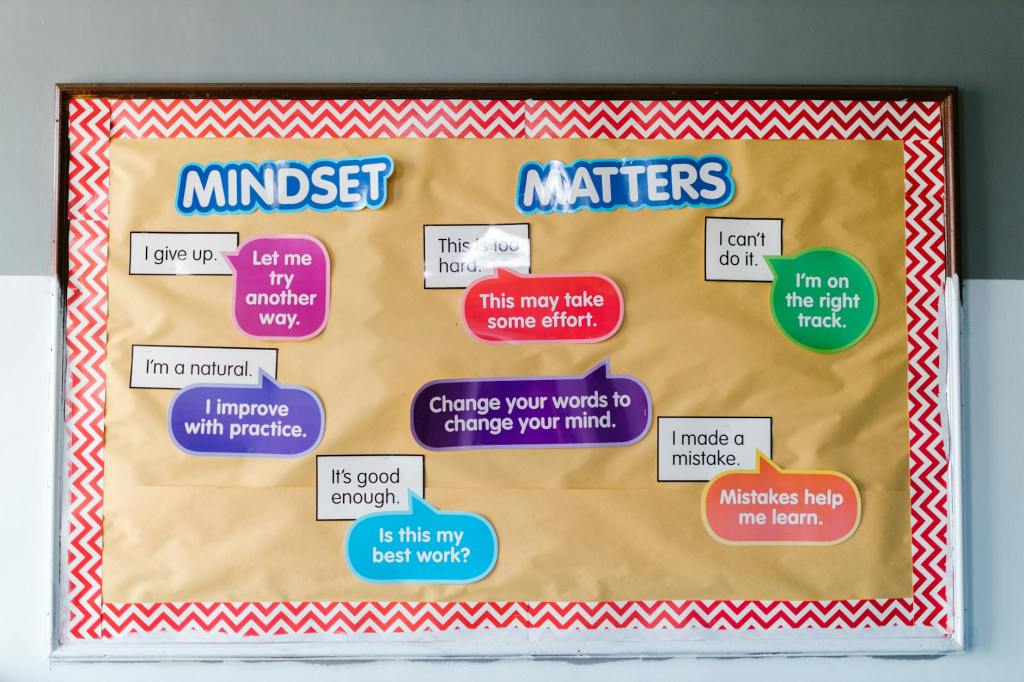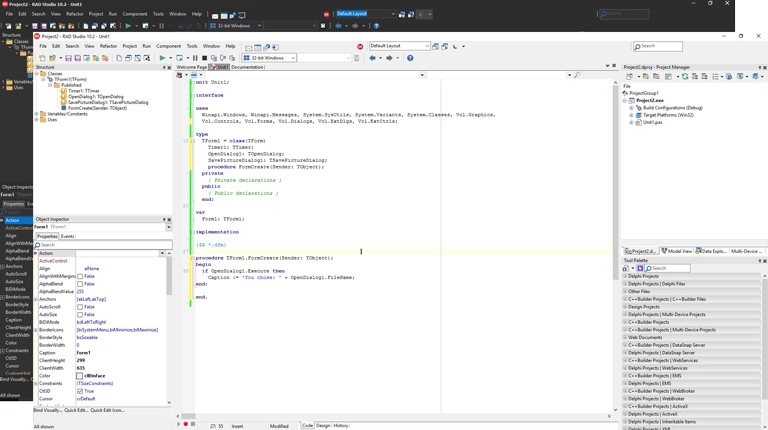The software industry is always changing and the ability to adapt and embrace a growth mindset is crucial. As new frameworks emerge and best practices shift, it’s tempting to cling to what’s familiar. However, as someone who has grappled with depression, anxiety, and suicidal ideation, I’ve learned that a fixed mindset can be detrimental, both professionally and personally.
Early in my career, I thrived on the challenges of software development. With a perfectionist streak, I tackled each coding problem as an opportunity to learn and grow. But as responsibilities mounted and managing other programmers, the weight of those expectations took a toll.
The negative self-talk that often accompanies mental health struggles can insidiously erode even the most tenacious growth mindset. The same curiosity and passion that once fueled my love for coding gradually gave way to a fear of failure and a resistance to change.
And I am now beginning to re-develop that growth mindset. It is a long journey and not over yet. Yet, through this journey, I’ve come to understand the importance of self-compassion and seeking support when needed. By destigmatizing discussions around mental health within the tech community, we can create an environment where developers feel empowered to prioritize their well-being without sacrificing their drive for continuous learning.
Fixed vs. Growth Mindset
Psychologist Carol Dweck identified two fundamental mindsets: fixed and growth. Those with a fixed mindset believe their intelligence and abilities are set in stone. They view challenges as threats, setbacks as failures, and effort as a sign of weakness. Programmers with a fixed mindset might shy away from complex projects, fearing they lack the innate talent to succeed.
On the other hand, those with a growth mindset believe their abilities can be developed through hard work and dedication. They see challenges as opportunities to learn and grow, and setbacks as stepping stones on the path to mastery. Programmers with a growth mindset embrace learning new languages, diving into unfamiliar frameworks, and experimenting with innovative solutions.
Why Growth Mindset Matters for Programmers
The benefits of a growth mindset for software developers are numerous:
- Embracing Challenges: Difficult bugs, complex requirements, and unfamiliar technologies become exciting learning opportunities instead of insurmountable walls.
- Increased Resilience: Setbacks and failures are seen as temporary roadblocks, not reflections of intelligence. This fosters resilience and encourages programmers to keep pushing forward.
- Continuous Learning: Growth mindset fosters a love of learning, prompting programmers to constantly seek out new resources, tutorials, and experiences to enhance their skillset.
- Improved Collaboration: A growth mindset encourages open communication and knowledge sharing within teams. Programmers are less afraid to ask for help or admit they don’t know something.
- Adaptability in a Changing Landscape: The technology landscape is constantly evolving. A growth mindset prepares programmers to adapt to new trends and frameworks with a “can-do” attitude.
From “I Can’t” to “I Can Learn This”
The good news is, a growth mindset isn’t something you’re born with – it can be cultivated. Here are some practical tips to help you adopt a growth mindset:
- Reframe Challenges as Learning Opportunities: When faced with a difficult task, reframe it as a chance to learn and grow your skillset.
- Celebrate Effort and Process: Recognize and appreciate the effort you put into learning, not just the end result.
- Embrace Experimentation: Don’t be afraid to experiment with different approaches and solutions. Failure is a natural part of the learning process.
- Seek Out Feedback: Actively seek feedback from mentors, peers, and code reviews. Constructive criticism is a valuable tool for improvement.
- Focus on Progress, Not Perfection: Recognize that learning is a journey, not a destination. Celebrate small wins and progress made over time.
Examples of Growth Mindset in Action
Imagine two programmers tackling a complex new framework. Programmer A, with a fixed mindset, might say, “I’ve never used this before. I’m not good enough to learn it.” Programmer B, with a growth mindset, thinks, “This is a great opportunity to expand my skillset. I’ll start with some tutorials, experiment with some code, and don’t be afraid to ask for help if I get stuck.”
Programmer A might give up after encountering a few errors, feeling discouraged and reinforcing their belief of inadequacy. Programmer B, however, sees these errors as learning opportunities, debugs the code patiently, and emerges with a newfound understanding of the framework.
This divergence played out in my own career in the early 1990s with the release of Delphi by Borland. The company I was working for was already used Borland products and rather than shying away from the new component-based, object-oriented system, I embraced the challenge. Applying my existing Pascal knowledge with an open perspective, I was able to create a reasonably compact program with a good GUI for its time. By maintaining a growth mindset, viewing each technological evolution as an opportunity rather than a roadblock, I continuously upskilled and delivered satisfactory results. This adaptability proved invaluable in an industry where change is the only constant.
Final Thoughts
The journey back to a growth mindset is a marathon, not a sprint. Just as the old cliché goes, “you can only move a mountain one pebble at a time,” it takes nearly six years to climb out of the depths of feeling trapped with no way out. From that lowest point where looking at code fills me with dread, I slowly but surely reclaim my passion for the craft.
Each small victory, every line of code written without fear or self-doubt, is a pebble moved. And though the mountain still looms, I now stand a little taller, empowered by the knowledge that a growth mindset is attainable, even after traversing the darkest of valleys.
The path to mastery is paved with obstacles, but for those who embrace a growth mindset, they are equipped with the tools to transform challenges into opportunities. It’s not about being naturally gifted, but about nurturing an unwavering desire to learn, adapt, and continuously elevate one’s skills.
Endnotes
Building a Growth-Minded Community
As a programmer or mentor, you can foster a growth mindset within your team or community by:
- Praising Effort and Persistence: Recognize and acknowledge the hard work and dedication put into tackling challenges, not just successes.
- Creating a Safe Space for Failure: Encourage open communication and experimentation. Normalize making mistakes and view them as learning experiences.
- Sharing Your Own Learning Journey: Mentors, be open about your own learning process. Show mentees that even experienced developers constantly learn and grow.
From Growth to Fixed Mindset,,,
People can move from a growth mindset to a fixed mindset, but it’s less common. Here’s why:
- Growth Mindset as the Default: Research suggests a natural bias towards a growth mindset, especially in children. People generally want to believe they can improve.
- Life Experiences Can Shift Mindsets: However, negative experiences, constant criticism, or a series of setbacks can chip away at a growth mindset, leading someone to believe their abilities are limited.
Here are some situations that might cause a shift to a fixed mindset:
- Chronic Failure: Experiencing repeated failures without support or guidance can lead to a belief that intelligence and talent are fixed.
- Focus on Praise vs. Process: Overemphasis on praising results over effort can make someone feel their worth depends solely on outcomes, not the learning process.
- Pressure and Competition: Intense pressure to succeed or constant comparisons to others can lead to feelings of inadequacy and a fixed mindset.
While a shift to fixed mindset is possible, it’s important to remember:
- Mindsets are malleable: With conscious effort and the right environment, people can move back to a growth mindset.
- Importance of Self-Awareness: Recognizing signs of a fixed mindset (avoiding challenges, fear of failure) is the first step towards positive change.
References
Dweck, C. S. (2006). Mindset: The New Psychology of Success. New York: Random House Publishing Group





Leave a comment